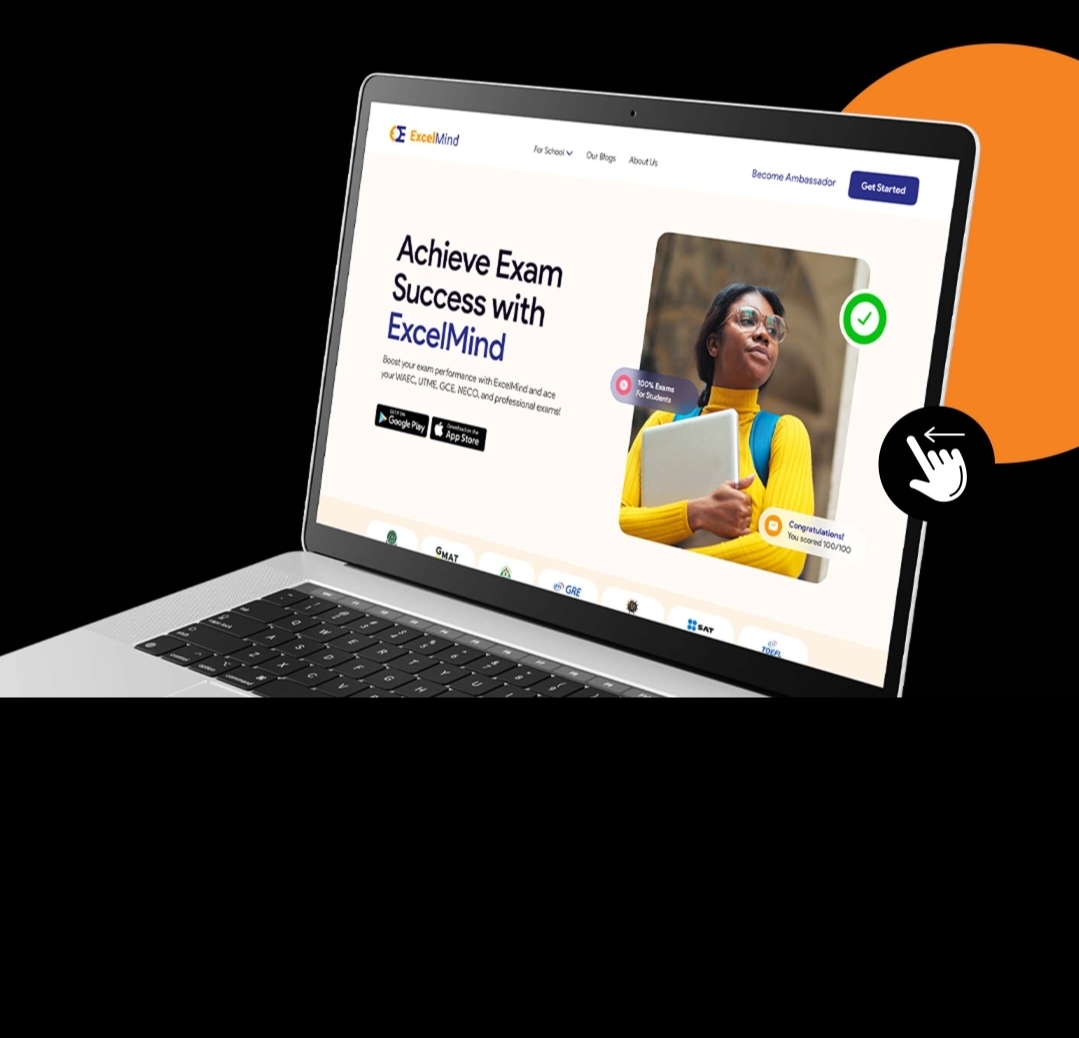Physical Address
304 North Cardinal St.
Dorchester Center, MA 02124

Getting into the Federal University of Technology, Akure (FUTA) is the dream of many students. How to Pass FUTA Post UTME is a crucial step, but with the right guidance, you can make this dream a reality.
This guide will show you how to pass FUTA Post UTME without stress, using the best tools and strategies available. Among these, the ExcelMind app stands out as the number one solution to help you succeed, even without studying as much as you think you need to.

Read Also: Pass LASU Post UTME 2025: Success Awaits with ExcelMind
The FUTA Post UTME is not just another test; it determines whether you’ll gain admission into this prestigious university. A lot of students feel overwhelmed by the thought of it, but here’s the truth: with proper preparation and the right tools, you can pass FUTA Post UTME with ease.

Let’s break this down into simple steps and show you how to prepare effectively.
To pass FUTA Post UTME, you must first understand how the test works:
Knowing this helps you focus on what’s important.
The ExcelMind app is a revolutionary tool designed to help students like you pass the FUTA Post UTME. Here’s how it works and why it’s the best choice:

ExcelMind uses artificial intelligence to identify your weak areas and provide targeted lessons. For example:
The app gives you access to FUTA’s past Post UTME questions. Practicing these helps you understand the exam style and identify recurring topics.
Not everyone studies the same way. ExcelMind creates a custom plan for you:
ExcelMind’s mock exams simulate the real FUTA Post UTME:
Learning doesn’t have to be boring. ExcelMind rewards you with points and badges for completing tasks. This keeps you motivated and engaged.
ExcelMind’s predictive technology analyzes past exam patterns and focuses only on likely topics. This means you can pass FUTA Post UTME even with limited study time.
Many students think they need to study everything, but that’s not true. Focus on these tips:
Stress can ruin even the best preparation. Here’s how to stay calm:
On the exam day, follow these steps:
Many students have used ExcelMind to pass FUTA Post UTME. For instance:
Michael Mololuwa had always dreamed of excelling in his UTME and securing admission to FUTA. However, the thought of preparing for the Post UTME felt overwhelming. He didn’t know where to start or how to focus his efforts.
That’s when Michael discovered the ExcelMind app. With access to expertly curated past questions and a personalized study plan, he found his preparation journey transformed. ExcelMind’s mock tests helped him understand the exam format and build confidence. The app’s gamified learning made studying enjoyable and kept him motivated.
“ExcelMind made preparing for my Post UTME less stressful,” Michael shared. “I could study more effectively because I had past questions and personalized lessons guiding me every step of the way.”
This is just an example of how ExcelMind changes lives.
See Also: Unilorin post-UTME Past Question: Powerful Prep Tools from ExcelMind
Are you ready to pass FUTA Post UTME and secure your admission? Don’t leave your future to chance. Download the ExcelMind app today and start your journey to success. With ExcelMind, you can achieve your dreams without the stress.
Click here to download the app now and pass FUTA Post UTME effortlessly. Passing FUTA Post UTME doesn’t have to be a struggle. By using the ExcelMind app and following the steps in this guide, you can prepare smartly, stay confident, and excel in the exam. Remember, your future starts now. Take the first step and make it count.
To easily pass Post UTME, focus on practising past questions, use a reliable tool like the ExcelMind app for personalized study plans and mock exams, study consistently, manage your time during the exam, and stay calm and confident on the test day.
FUTA Post UTME is typically a computer-based test (CBT) conducted at designated centres on the university campus. The test consists of multiple-choice questions based on the candidate’s UTME subject combination. It assesses knowledge in subjects relevant to the chosen course of study. Candidates are required to bring their registration slip and other necessary documents, and they must adhere to the time allocated for the test.
To score high in Post UTME, focus on the following:
Study Past Questions: Practice frequently to understand the exam pattern and common topics.
Use Study Tools: Leverage apps like ExcelMind for personalized plans, mock tests, and topic-focused learning.
Be Consistent: Study daily in short, focused sessions rather than cramming.
Time Management: Practice answering questions within the allocated time to improve speed and accuracy.
Stay Calm: Get enough rest before the exam day and approach the test with confidence.
In FUTA Post UTME, you will write subjects that align with your UTME subject combination, typically four subjects. These subjects depend on the course you are applying for and usually include core subjects relevant to that course.
Post UTME is often considered tougher than JAMB because it is more competitive and specific. While JAMB tests general knowledge across broad subjects, Post UTME focuses on detailed and course-specific questions set by the university, with limited slots for admission. Additionally, some universities, like FUTA, use Post UTME to assess critical thinking and depth of understanding, making it a more challenging hurdle for candidates.
Post-UTME is typically marked electronically, especially for computer-based tests (CBT). Each question carries a specific mark, and your score is calculated based on the number of correct answers. There is usually no negative marking for wrong answers unless specified by the university. The final score is often standardized to fit the university’s grading system, and this score is combined with your JAMB score to determine your admission eligibility.
Yes, FUTA often repeats Post UTME questions from past exams, though not always in the same format. Reviewing past questions is highly beneficial as it helps you understand the pattern, structure, and commonly tested topics, increasing your chances of encountering familiar questions during the exam.